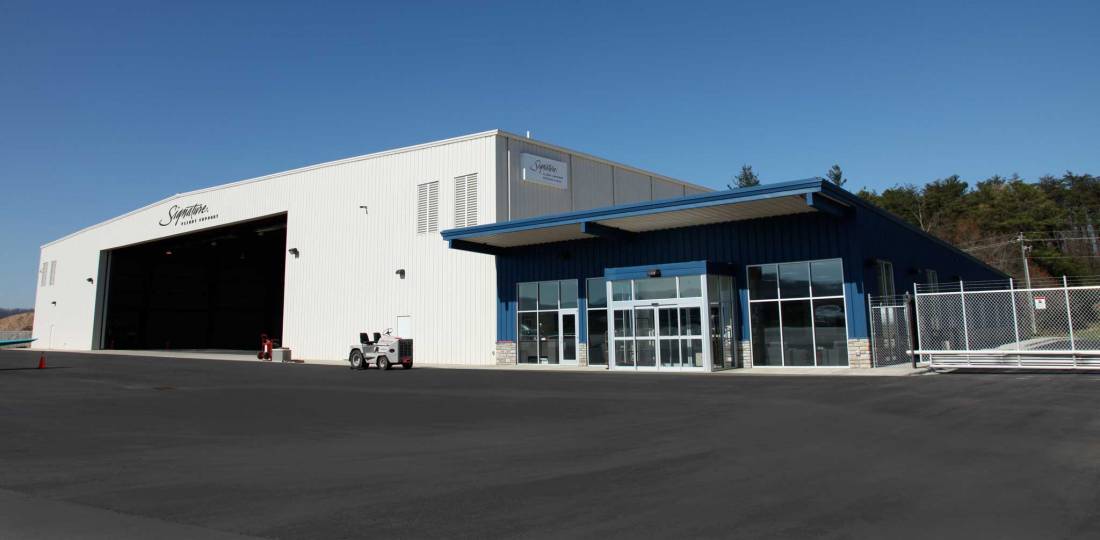FAA decides on AOPAs Asheville/KAVL complaint: Agency argues pilots can be charged for FBO services they do not want or use!
The FAA’s Southern Region Airports Division has decided against AOPA’s Part 13 complaint over egregious fixed-base operator fees and unreasonable access at Asheville Regional Airport/KAVL in North Carolina. A June 7 letter clears the way for Signature, the sole FBO at Asheville, to continue to charge general aviation pilots for unnecessary and unwanted services. Although informal at this stage, AOPA believes the decision contradicts existing FAA policies, and could be the beginning of a dangerous precedent for many other airports across the country.

AOPA General Counsel Ken Mead said, “We believe the FAA Southern Region decision is incorrect and inconsistent with the ruling in Orange County as well as the guidance FAA headquarters issued as recently as December 2017. Most airports and FBOs are doing a great job, but in situations where that isn’t the case we will continue to fight for reasonable access, transparent and public posting of fees, and competition where practical. Are these three simple, fair, and reasonable things too much to ask for? I think not.”
In 2017, AOPA, on behalf of affected pilots, filed three similar Part 13 complaints against three airports: Asheville, Key West International Airport in Florida, and Waukegan National Airport in Illinois. All three airports have one FBO, Signature Flight Support, that controls all available ramp space for transient GA aircraft and imposes high fees for services that pilots often don’t request or need. Signature is a subsidiary of BBA Aviation, which is traded on the London Stock Exchange. All three airports also receive FAA Airport Improvement Program grants, which means they are bound by federal obligations to make the airport available for public use and ensure FBOs impose only fair and non-discriminatory fees on users.AOPA withdrew the complaint against Waukegan after the airport announced a free transient tiedown area and worked with the FBO to reduce the price of self-service avgas. In April, AOPA announced a Watch Listof 10 additional airports that potentially have similar issues to Asheville, Key West, and Waukegan. The association is also working with industry leaders through the AOPA Airport Access Advisory Panel to protect reasonable access at public-use airports.
Fictitious 'fair market rate'
According to the decision, the FAA believes Signature’s use of “fair market rates” for its services at Asheville is in compliance with federal grant obligations. But AOPA argues that Signature maintains a monopoly over transient GA parking in the Asheville area, giving it exclusive control over this market. And when Signature controls the entire market, the so-called “fair market rate” is simply whatever the Signature FBO wants to charge pilots.
Mead asked, “How can there be a market rate without competition? The FAA’s decision is based on the false assumption that competition exists.”
The implications are clear: Signature will continue to charge pilots for services they do not need, want, or use—a business practice the FAA calls “common.” It would also mean that private FBOs at federally funded public-access airports can play by a different set of rules than municipally operated FBOs and airports providing aeronautical services to airlines.
“It is fundamentally offensive for the FAA to imply that it is an acceptable business practice to make pilots pay for services they don’t request or need,” said Mead.
According to the FAA’s Rates and Charges Policy, there are two categories of airport fees, airfield fees and non-airfield fees. Airfield fees must be based on costs but non-airfield fees can be based on fair market value. Airport fees imposed on airlines for use of ramps and aprons, as well as ramp fees charged by municipal GA FBOs, are considered airfield fees under the Rates and Charges Policy.
But the decision inexplicably applies a different and lower standard to pricing at Asheville, according to AOPA. The FAA decision places GA ramp fees at Asheville in the category of non-airfield fees despite past decisions and guidance to the contrary.
As Mead explained, “Existing FAA policy requires airports, including municipally operated FBOs, to charge pilots only for the cost of using any transient ramp they offer to the public. The decision now allows airports to hand over that ramp to a monopoly position FBO and allow it to charge whatever they want. It makes no sense, sets a scary precedent, and contradicts guidance the FAA published in December 2017.”
FAA won’t 'second guess' airports
AOPA is also concerned that the decision effectively relieves Asheville Airport of its obligation to conduct oversight over the pricing imposed by Signature.
In the decision, the FAA Southern Region Airports Division noted that the airport “believes that Signature’s fees are necessary and reasonable” and the FAA is “not in a position to second-guess [the airport].” In making that conclusion, the FAA seems to forget federal obligations that were included in the agency’s 2017 guidance on FBO pricing that specifically require airports to “ensure” the FBO is imposing only reasonable fees and prices. The FAA’s significant deference to Asheville has enabled unfettered monopoly pricing that will have detrimental effects on airport access.
The decision also is contrary to the FAA’s standard of compliance to determine if there has been a violation of grant assurances. According to the decision, “The FAA does not judge an airport sponsor simply by the plain language of agreements or minimum standards… Rather, the FAA judges compliance by an airport sponsor’s actions, or inactions, with respect to those agreements or minimum standards.” But in its reasoning, the FAA bypassed this standard and concluded Asheville is in compliance with federal grant assurances based only on a review of the FBO’s lease and not on any specific actions of the airport.
What’s next
According to Mead, the message to pilots is clear and unacceptable to AOPA.
While the decision does not set a binding precedent for other airports, Mead believes it is indicative of a flawed perspective at the FAA that has allowed certain monopoly-position FBOs to impose unreasonable fees on GA users and could worsen.
“This shows just how important our work is, and we will not stop until the FAA and the problem locations understand that fees imposed on GA pilots at publicly funded airports cannot just be whatever they think they can get away with,” said Mead.

